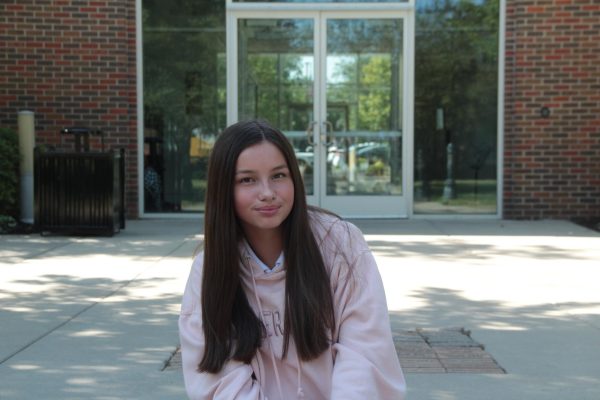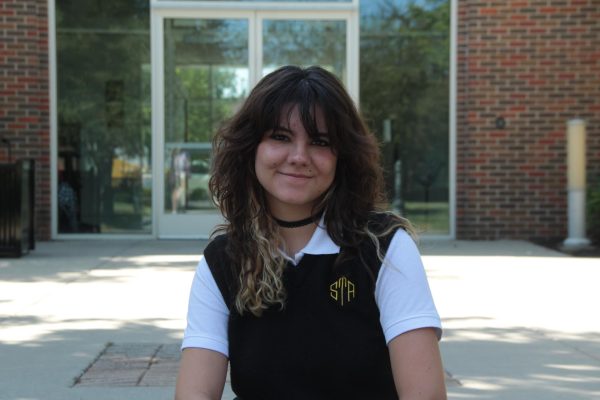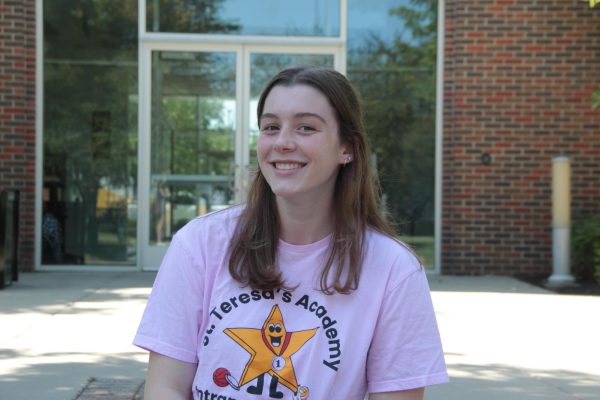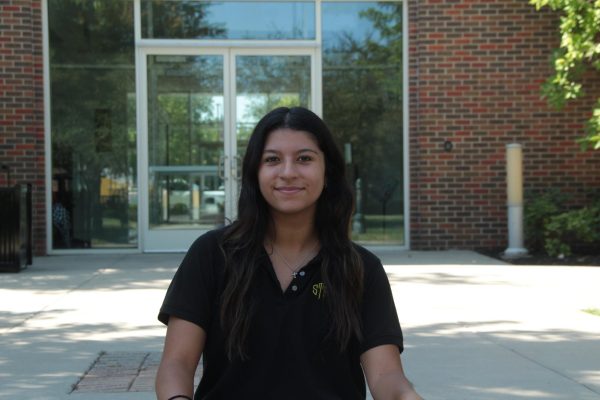TikTok’s Toxicity
While entertaining, the popular app is harmful to users because it promotes under-eating, doesn’t allow for peaceful political conversation and has a myriad of problematic videos and users.
December 22, 2020
Don’t get me wrong, I love TikTok, as evidenced by my ever-climbing screen time report. I am always entertained and have found TikTokers that promote good causes and good organizations, such as Victoria Garrick promoting mental health awareness, or users sharing resources to combat racism amidst the BLM movement.
However, TikTok is not a legitimate news source, even though some try to use it as such. Blatant misinformation runs rampant on the app and ranges from politics to COVID 19 to diets and current events. TikTok, while entertaining, can harm mental health and warp perceptions of the real world.
Firstly, TikTok is a major hub for food videos. I personally love watching baking videos. However, there is also a lot of “diet,” “low calorie” and “healthy” recipes that circulate the app. While not inherently harmful, these videos often come with messages encouraging viewers to lose weight.
Even more harmful, in my opinion, are “What I Eat in a Day” TikToks. These videos are typically a minute long, and show everything the creator eats in a day along with the calorie count. Sometimes, these calorie counts are dangerously low and would only be considered enough for a 3 or 4 year old child. I am aware that I need more food than those videos show, but what about younger TikTok users? TikTok perpetuates the growing epidemic of diet culture, in which thinness is equated with healthiness. These ideas can be easily impressed upon young viewers and can lead to body-image issues.
Furthermore, TikTok is also used by many people to voice their own political views. I think teenagers advocating for social issues and being politically involved is amazing because it forms more aware and involved citizens. However, TikTok typically does not have peaceful discourse.
For example, before the election, users would post videos stating their political views. The comments would then be flooded with “TRUMP 2020” or “BIDEN 2020.” Simply stating your candidate’s name in the comment section does not allow for any civil discourse. Rather, it stops the conversation before it even starts. Genuine conversations must have mutual respect and allow both sides to state their beliefs. This rarely, if ever, occurs on TikTok.
On the other hand, the algorithm of TikTok’s explore page only shows videos it thinks you will be interested in. Sometimes, this creates political echo chambers — accounts or videos where everyone shares the same views so they only affirm each other’s ideas. There is nothing wrong with being around like-minded people, but I think it warps your perspective of the real world because you are only exposed to one political viewpoint.
You may be thinking, “Wow, I bet Sophia doesn’t use TikTok due to its problematic nature.” Well, I still am an avid TikTok user, but I have adjusted the way I use TikTok. I have followed body positive TikTokers, like Victoria Garrick and Sienna Mae. When I see TikToks promoting unhealthy eating habits, I click “not interested.” I avoid political discussions online and instead have genuine conversations with friends and family about important issues. I encourage you to curate your own TikTok and other social media feeds so you are more mindful of the media you are consuming.TikTok may be toxic, but it has some redeemable qualities as long as you are a conscientious user.












